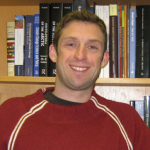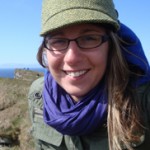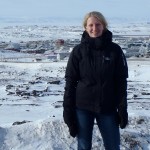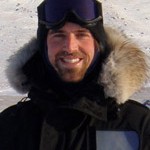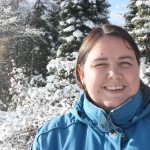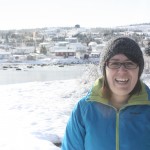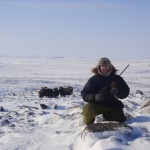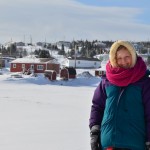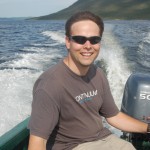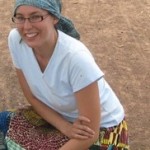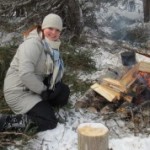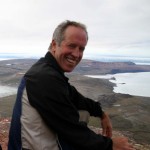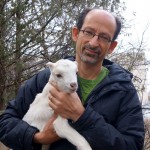People of IK-ADAPT
Project Management Team
Regional Management Team
Community Adaptation Leaders
Student Researchers, Research Assistants, and Staff
Project Collaborators
Dr. James D. Ford
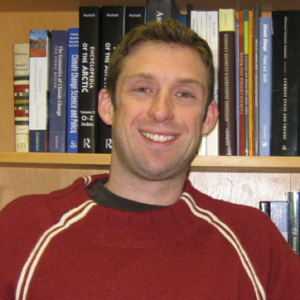
Principle Investigator
James Ford is an Assistant Professor in the Department of Geography at McGill University, purchase specializing in climate change vulnerability assessment and adaptation planning, no rx particularly within Indigenous contexts. As head of the Climate Change Adaptation Research Group (CCARG) at McGill University and Principle Investigator of IK-ADAPT, James currently has projects underway working with numerous Inuit communities in Canada. He is also co-lead on the Indigenous Health Adaptation to Climate Change (IHACC) project—a 5 year, $2.5m initiative working with Indigenous communities in the Arctic, Peru and Uganda—to develop sustainable adaptations to reduce climate change related health vulnerabilities. His research is also developing novel approaches to track climate change adaptation at global and regional levels, and developing systematic reviews in an environmental change context. He is currently an editor at Regional Environmental Change, and has published widely in leading journals including Global Environmental Change, American Journal of Public Health, Climatic Change, Environmental Research Letters, and Human Ecology, among others. Prior to joining McGill he completed his PhD in Geography at the University of Guelph, and holds an MSc in Environmental Change and BA in Geography from Oxford. He was a contributing author to the IPCC Fourth Assessment Report, and a recipient of a Young Innovator Award from the Canadian government for his innovative community-based research in the North
Dr. Ashlee Cunsolo Willox
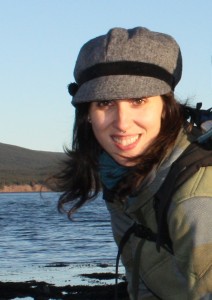
Co-Investigator and Project Lead for Rigolet, check Nunatsiavut
Ashlee Cunsolo Willox is a Canada Research Chair in Determinants of Healthy Communities and an Assistant Professor in Community Health at Cape Breton University. As a community-engaged social science and health researcher, click Ashlee works at the intersection of place, cialis culture, health, and environment, with a particular focus on working in partnership with Indigenous communities to enhance resilience and adaptive capacities to rapid climatic, environmental, social, and cultural change. She was previously a Postdoctoral Research Fellow in the Climate Change Adaptation Research Group at McGill University. Ashlee completed her PhD and BAH at the University of Guelph, and taught within the International Development Studies program there. She also works and researches in capacity development, community-engaged health research, environmental philosophy and ethics, and the social justice implications of health inequality.
Dr. Tristan Pearce
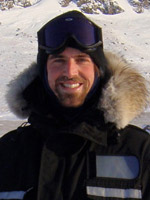
Co-Investigator and Project Lead for Ulukhaktok, cialis Inuvialuit Settlement Region
Tristan Pearce is a CRN Fellow at the Sustainability Research Centre at the University of the Sunshine Coast in Queensland, Australia, and Adjunct Faculty in the Department of Geography at the University of Guelph. His research focuses on the vulnerability and adaptation of communities and socio-economic systems to global environmental changes, especially climate change. He has undertaken this research in partnership with communities, industry, and government across Canada and internationally. He has a particular interest in building partnerships with Indigenous peoples and integrating traditional knowledge in climate change research. Tristan has conducted research together with community members in Ulukhaktok, Northwest Territories, Canada since 2004. This research has investigated the implications of climate change for Inuit and adaptation options, the transmission of environmental knowledge among Inuit men, and the role and importance of Inuit knowledge in adaptation to climate change.
Susan Chatwood
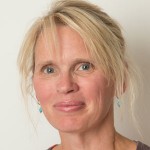
Co-Investigator and Project Lead for Yellowknife, viagra sale Northwest Territories
Susan Chatwood is the Executive and Scientific Director of the Institute for Circumpolar Health Research in Yellowknife, help Northwest Territories, Past President of the Canadian Society for Circumpolar Health and Vice-President of the International Network for Circumpolar Health Research. She is also an Assistant Professor in the Dalla Lana School of Public Health. She has a Bachelor of Science in Nursing from University of British Columbia, holds a Masters in Epidemiology from McGill University and is conducting her PhD in Medical Science at the University of Toronto with a focus on circumpolar health systems performance. Susan has an interest in building sustainable health research capacity in northern regions and enhancing approaches which allow for reflections on circumpolar perspectives. She has spent most of her career in remote and northern communities, working in the clinical setting, public health and research. Her research interests include circumpolar health systems performance, climate as a determinant of health, health monitoring strategies and building sustainable and ethical health research capacity and networks in northern regions. Research projects promoted are participatory and engage decision makers, northern stakeholders and practitioners with a focus on health systems, food security, climate change and homelessness. Her current projects within the Institute for Circumpolar Health Research have strived to build northern capacity and include the development of research infrastructure within the Arctic Research Infrastructure Program, development of ethics guidelines and policy for the Northwest Territories, the establishment of a data center which will include a branch office of Statistics Canada Regional Data Center, Circumpolar Health Observatory and a circumpolar health library. Research activities and leadership is supported through memorandums of understanding with the University of Toronto and the Canadian Institutes for Health Research.
Dr. Ian Mauro
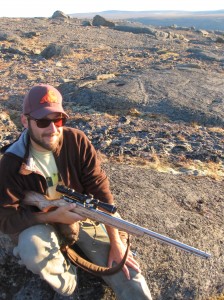
Co-Investigator and Project Lead for Igloolik, buy Nunavut
Dr. Ian J. Mauro is an Associate Professor in the Department of Geography at the University of Winnipeg. As both a community-based researcher and filmmaker, prostate he works at the interface of the social and ecological sciences, recipe and is a pioneer of multi-media methodologies, scholarship and education. Mauro’s research focuses on how farmer, fisher and hunter knowledge contributes to global environmental sustainability, specifically in northern and rural regions. Mauro co-directed Qapirangajuq: Inuit Knowledge and Climate Change with acclaimed Inuk filmmaker Zacharias Kunuk (Atanarjuat The Fast Runner), which is the world’s first Inuktitut language film on climate change, and has been selected by numerous international film festivals and academic conferences. Other recent projects include Nilliajut: Inuit Voices on Arctic Security, in collaboration with the national Inuit organization ITK, as well as the Climate Change in Atlantic Canada multi-media project, a large-scale study including video-based interviews with over 100 participants across the region regarding adaptation. Mauro’s other films on biotechnology and sustainable agriculture have been translated into Japanese, Spanish and French and are used extensively in libraries and university programs.
www.isuma.tv/ikcc
www.climatechangeatlantic.com
www.seedsofchangefilm.org
www.youtube.com/user/IanMauroVideos
Dr. Chris Furgal
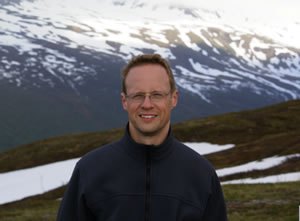
Co-Investigator and Project Lead for Nain, viagra Nunatsiavut
Chris Furgal is an Associate Professor in the Indigenous Environmental Studies Program at Trent University in Peterborough, sildenafil Ontario. He is cross-appointed to the Departments of Indigenous Studies and Environmental Resource Studies and Sciences. He holds a B.Sc. (Ecology and Evolution) from the University of Western Ontario, an M.Sc. (Biology) and Ph.D. (Environmental Studies/Planning) from the University of Waterloo, and was a CIHR Postdoctoral fellow in Environmental Health at LavalUniversity Research Hospital, Public Health Research Unit from 1998-2003. He has previously held positions at Laval University cross-appointed between the Departments of Community Health and Political Science. His current research focuses on environmental health risk assessment, management and communication with Aboriginal communities throughout the Arctic. Outside of his teaching and research, Chris is a co-founder and co-director of the Nasivvik Centre for Inuit Health and Changing Environments along with Dr. Eric Dewailly. Previously, Chris has been a lead author of several national and international science assessments on Arctic environmental health issues including the human dimensions of climate change and environmental contaminants. He was a lead author with the United Nations Intergovernmental Panel on Climate Change Fourth Assessment, through which he was a co-recipient with the other authors of the 2007 Nobel Prize for raising awareness of global climate change. In addition, he has been a lead author on the Arctic Climate Impacts Assessment and the most recent Canadian assessments on Climate Change in the North published by Natural Resources Canada and Health Canada where he lead contributions on the impacts of climate change on health in Arctic populations.
http://cfurgalresearch.wordpress.com/chris-furgal/
Sherilee Harper
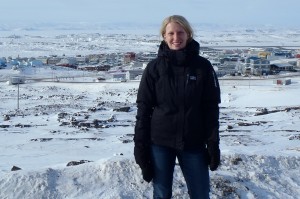
Co-Investigator and Project Lead for Rigolet, find Nunatsiavut
Sherilee Harper is an Assistant Professor in the Department of Population Medicine at the University of Guelph. Her research investigates associations between weather, recipe water, and Indigenous health in the context of climate change, and she collaborates with Indigenous partners to prioritise climate-related health actions, planning, interventions, and research. In addition to her work with IK-ADAPT, she is also currently a collaborator in an international research initiative called the Indigenous Health Adaptation to Climate Change (IHACC) project, which works closely with Indigenous peoples and their organizations in the Canadian Arctic, Ugandan Impenetrable Forest, and the Peruvian Amazon. She currently sits on the Editorial Board of Epidemiology and Infection.
Adam Kolohouk Kudlak
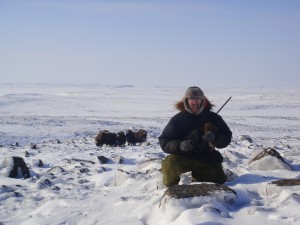
Community Adaptation Leader for Ulukhaktok, sovaldi Inuvialuit Settlement Region
Adam Kolohouk Kudlak of Ulukhaktok, buy viagra Northwest Territories is a husband, buy cialis and father to four children, Manuk, Koral, Daisy and Natane. He is an avid hunter and provider for his family and community, continually learning and sharing his knowledge of the land and wildlife with others, including youth in his position as an Educator at Helen Kalvak Elihakvik (school). Adam is a member of the Canadian Rangers and long-term partner in research projects undertaken in Ulukhaktok.
Charlotte Wolfrey

Community Adaptation Leader for Rigolet, no rx Nunatsiavut
Charlotte Wolfrey (Pottle) was born in Rigolet, unhealthy where she lived until the age of eleven. She then moved to Goose Bay where she lived, mind went to school and worked until her early thirties. Charlotte worked and lived in Labrador City in the late 70’s when she worked for the Iron Ore Company of Canada and was probably one of the first Inuit women to work in a mine. Charlotte moved back to her home, Rigolet in 1980 where she raised her children, worked and volunteered. Charlotte is most proud of being a wife, a mom to her four children and a grandmother to her 14 grandchildren. Charlotte is known mostly throughout Nunatsiavut, NL and Canada for her work in advocacy for the rights of women and children and for her dedication to speaking against family violence. She was always involved in politics in some way, especially at a community and regional level, serving many years on the Community Council and Labrador Inuit Association. Before running for AngajukKâk, Charlotte worked as a researcher for Sikumiut Environmental, an Inuit owned research company. She was involved in research in one form or another since the early 1980’s. She has served on regional, provincial, national and international committees, including Canadian Inuit Circumpolar Health Society, Atlantic Aboriginal Health Research, Pauktuutit Inuit Women of Canada, Provincial Advisory Council on the Status of Women and many local/ regional groups and organizations. She has held a variety of senior management positions in health care and in municipal administration. Charlotte has also been leading and advising research projects in Rigolet on climate change and health since 2010 (www.rigolet.ca).
Marilyn Baikie
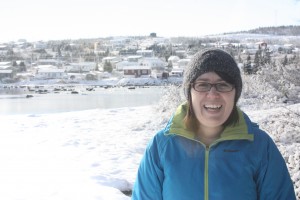
Community Adaptation Leader for Rigolet, store Nunatsiavut
Marilyn Baikie is the Project Leader with the ‘My Word’:Storytelling and Digital Media Lab, viagra where she uses digital media techniques in the research process, particularly around climate change and health. She holds a Bachelor of Arts Degree from Memorial University of Newfoundland and is currently studying to complete a second Degree. Marilyn grew up in Rigolet and enjoys the peaceful life that living in Nunatsiavut offers. She enjoys snowshoeing, hunting, fishing and snowmobiling. Marilyn and her husband Kevin and three children, Robert, Nathan and Ella, love spending time at their cabin and love the longs days of spring when they spend many evenings boiling-up and enjoying the beautiful scenery surrounding Rigolet
www.townofrigolet.com/home/my_word.htm
Inez Shiwak
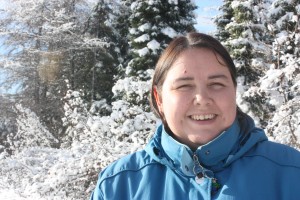
Community Adaptation Leader for Rigolet, advice Nunatsiavut
Inez Shiwak is the Project Assistant with the ‘My Word:’ Storytelling and Digital Media Lab, patient where she unites her skills in digital media technology with research. She received a Diploma in Office Administration from the College of the North Atlantic in 2002. Inez grew up in Rigolet, mind and enjoys outdoor activities with her family and friends. Through stories, she hopes to gain knowledge from Rigolet’s past and to find better ways of understanding the effects of changing climate and health on her community
Lesya Nakoneczny

Communications Assistant
Lesya Nakoneczny assists the IK-ADAPT project with its outreach activities to the general public, look policymakers and partner communities through print design and multimedia development. Lesya is interested in how multimedia projects, prostate video and documentary film can be used as platforms for communicating climate change research to various audiences and as participatory research tools. Lesya graduated from McGill University in 2012 with an Honours degree in Geography, purchase and has worked with the Climate Change Adaptation Research Group at McGill University since the fall of 2012. She has previously studied and interned in Panama through McGill’s Panama Field Study Semester, focusing on the social and environmental impacts of mining in indigenous communities.
Allan Gordon
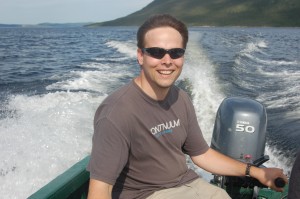
Research Associate at the University of Guelph
Allan Gordon recently completed his Master’s degree in Environmental Engineering at the University of Guelph and is also a Professional Engineer. He began his career as a design engineer in the manufacturing industry after receiving bachelor degrees in mechanical engineering and economics from Queen’s University. After some rewarding experiences while volunteering on research projects in the Canadian Arctic and on water issues in Uganda, generic he decided to change careers and head back to school with the goal of working in the water sector. Allan is currently working as a research assistant with the University of Guelph’s School of Engineering investigating how Indigenous knowledge can be incorporated into the engineering design process to create more robust, there appropriate, and sustainable infrastructure in Canadian Arctic communities to promote and protect health in the context of climate change.
Kaitlyn Finner
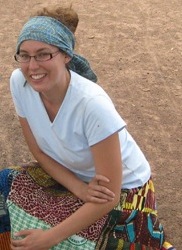
Master’s Student at McGill University
Kaitlyn is a Masters student in Geography at McGill University, viagra working as part of the Climate Change and Adaptation Research Group. She holds a Bachelor’s of Public of Affairs and Policy Management, Highest Honours, Specialization in International Studies, from Carleton University. Her undergraduate research thesis focused on the international community’s failure to develop a normative response plan for forced human displacement resulting from both short- and long-term environmental events. Kaitlyn has completed internships and research in the Peruvian Andes and Central Mexico, and in 2010 she lived in rural Northern Ghana working for the Ghanaian Ministry of Food and Agriculture. Her interest in climate change is based on the precarious human-environment relationship and the importance of considering culture and varied forms of knowledge when seeking to understand human vulnerability. A recipient of the Nasivvik Centre for Inuit Health and Changing Environments’ Masters Scholarship, her research is jointly supported by the IK-ADAPT project and the Indigenous Health Adaptation to Climate Change (IHACC) project.
Joanna Petrasek MacDonald
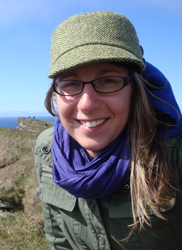
Incoming Project Coordinator
Hailing from the small town of Stratford, prostate Ontario, here Joanna is currently completing her Masters degree in Geography with Dr. James Ford in the Climate Change Adaptation Research Group at McGill University. Working in collaboration with IK-ADAPT and the Inuit Mental Health and Adaptation to Climate change project, levitra her thesis project focuses on the impacts of climate change on the mental health of youth in Nunatsiavut, Canada and potential adaptation strategies to respond to these impacts. Joanna’s interest in youth and climate change issues stems from an experience outside of academia – in 2009 and 2010 she was part of the Canadian Youth Delegation to the UN Climate Change conferences (COP15 and COP16). Joanna will be taking on a new role as project coordinator for IK-ADAPT in September 2014.
Dr. Victoria Edge
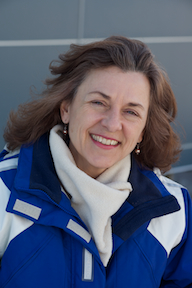
Project Collaborator
Victoria Edge is a senior epidemiologist and Manager of Population Health Assessment Epidemiology for the Public Health Agency of Canada in the Office of the Chief Public Health Officer. She is currently working in the area of population health assessment and scenario analysis. Victoria is also an adjunct professor with the Department of Population Medicine at the University of Guelph. Her research-related activities have involved a focus on public health issues in Northern communities, find involving enhancing community health surveillance and climate change impacts on community health related to infectious waterborne and foodborne illnesses. Her past role as co-lead on the Public Health Program with the Canadian Water Network allowed for encouraging innovative and multidisciplinary research of water-related issues in Aboriginal communities in Canada. Victoria is currently a Co-Investigator of the Indigenous Health Adaptation to Climate Change (IHACC) project, stuff an international initiative examining the impacts of climate change on indigenous health in Canada, Peru, and Uganda.
Dr. Khosrow Farahbakhsh
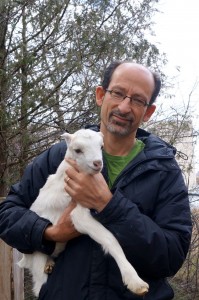
IK-ADAPT Project Collaborator
Dr. Khosrow Farahbakhsh is a professional Environmental Engineer and an Associate Professor at the School of Engineering, look University of Guelph. Dr. Farahbakhsh has over 20 years of design, site consulting and academic experience in Environmental Engineering addressing issues ranging from air pollution control, water, wastewater and stormwater management, soil and groundwater remediation, pollution prevention, resource recovery and energy from waste. Currently, Dr. Farahbakhsh’s research focuses on integrated water resources management, systems approach, water reuse, climate change adaptation, water management in First Nations and Inuit communities, knowledge mobilization, appropriate technology and sustainable innovation. Dr. Farahbakhsh has published widely in refereed journals and his work has been featured in various national and international media including the Globe and Mail, the Toronto Star, the Discovery Channel and the CNN. Dr. Farahbakhsh was the recipient of the CMHC Sustainable Education Award (2009) and acted as a special consultant to NASA’s Launch Water project (2010).
Dr. Barry Smit
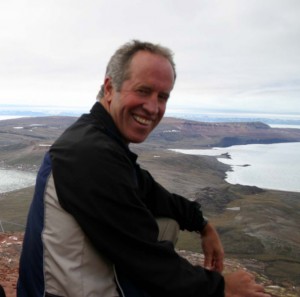
Project Collaborator
Dr Barry Smit is a Canada Research Chair in Global Environmental Change and Professor of Geography at the University of Guelph. He is a co-recipient of the Nobel Peace Prize 2007 for his role in the Intergovernmental Panel on Climate Change (IPCC). His research and practice on climate change adaptation span more than 30 years. He has authored over 100 scientific papers and 4 books. His work has been influential in international negotiations on climate change, sovaldi and has been applied in development initiatives in Asia, doctor Africa, the Americas, the Pacific and the Arctic. In 2010 he received the Canadian Association of Geographers Award for Scholarly Distinction. He has collaborated with major UN organizations, international development agencies and NGOs, and has advised governments in countries as diverse as Norway, USA, New Zealand, Bangladesh, and Samoa. He directs international applied research programs on climate change and adaptation in the Arctic and in agriculture. He has been an advisor to the Canadian federal and provincial governments, the Senate and business groups. He is a singer songwriter, and is frequently interviewed by the media.
Linnaea Jasiuk
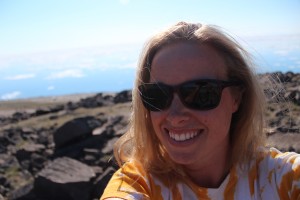
Masters student at University of Guelph
Linnaea Jasiuk is conducting her masters research in Ulukhaktok, buy viagra NWT. Linnaea’s interests lie in the transmission of local knowledge and its importance for the health and well-being of Ulukhaktokmuit in a changing climate. Prior to her graduate work, she completed her BSc in Environmental Science Coop (with a major in environmental biology) at the University of Guelph, where she was also a member of the Women’s Varsity Lacrosse team. Previous work has taken Linnaea to Oregon, Hawaii, Brazil, northern Ontario, and the Inuvialuit Settlement Region as a research assistant working with Dr. Tristan Pearce.
Colleen Parker
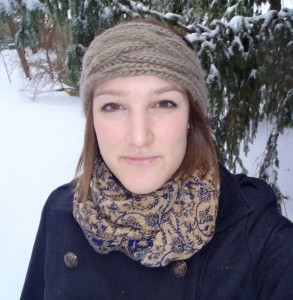
Masters student at University of Guelph
Colleen Parker is a first year Masters student at the University of Guelph, drugstore working with Dr. Tristan Pearce. Her interest in the Arctic was sparked during her time as a field assistant on the DEW Line Clean-up Project in Byron Bay and Cape Dyer, Nunavut. She has also worked on developing protocols for reciprocal exchange between Aboriginal and Western science knowledge systems in natural resource co-management and is currently the Director of the Environmental Sciences Symposium focusing on Traditional Knowledge and Cultural Perspectives on the Environment. She graduated from the University of Guelph with a Bachelor of Science in Environmental Sciences in December 2012.
Rachael Marshall
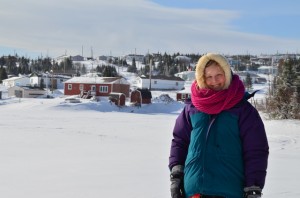
Research Associate
Rachael Marshall works with the IK-ADAPT research team in Nunatsiavut, view using participatory design processes to develop locally-appropriate and sustainable water infrastructure. Prior to her involvement with IK-ADAPT, hospital Rachael completed a BASc in geological engineering at Queen’s, site followed by an MASc in environmental engineering and international development studies at the University of Guelph. Her Masters research focused on participatory systems approaches to community-engaged integrated solid waste management in the Indigenous community of Todos Santos Cuchumatán, Guatemala. This project was founded on collaboration with local community members, and focused on the development of solid waste solutions that would be locally appropriate for the specific context of Todos Santos – i.e.. the community’s socio-cultural, economic, political, and ecological systems. This project solidified Rachael’s interest in participatory systems thinking for the promotion of healthy socio-ecological systems in changing environments.
Kate Bishop-Williams
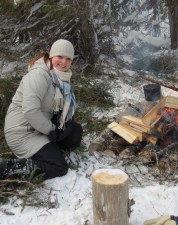
PhD Student at University of Guelph
Kate is a PhD student at the University of Guelph in the Department of Population Medicine working under the supervision of Dr. Sherilee Harper. She completed an Honours Bachelor degree at the University of Guelph in 2012 in Bio-Medical Science, search and a Masters of Science in 2014 in Epidemiology. Kate’s undergraduate research focused primarily on gastrointestinal illnesses with a project on each of E. coli, sovaldi sale Salmonella and the link between Johne’s disease in dairy cattle to Crohn’s disease. Kate’s MSc introduced her to EcoHealth. Her thesis was titled: The Impact of Heat Waves in Rural Southern Ontario on Dairy Cow Mortality and Human Emergency Room Visits. Using statistical and epidemiological skills learned in her Masters, Kate is working on a project in Rigolet, Nunatsiavut, identifying spatial and temporal patterns in acute gastrointestinal illness.
Carlee Wright
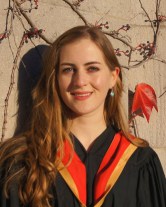
Incoming Master’s Student at University of Guelph
Carlee is working as a research assistant with Dr. Sherilee Harper at the University of Guelph, treatment and intends to pursue an MSc in Epidemiology; her objective is to research secondary contamination of drinking water and acute gastrointestinal illness in the Canadian Arctic. Through this she hopes to develop interventions to better protect drinking water and improve its management after collection. She recently completed her Honours Bachelor degree at the University of Guelph, where she majored in Biological Science.
